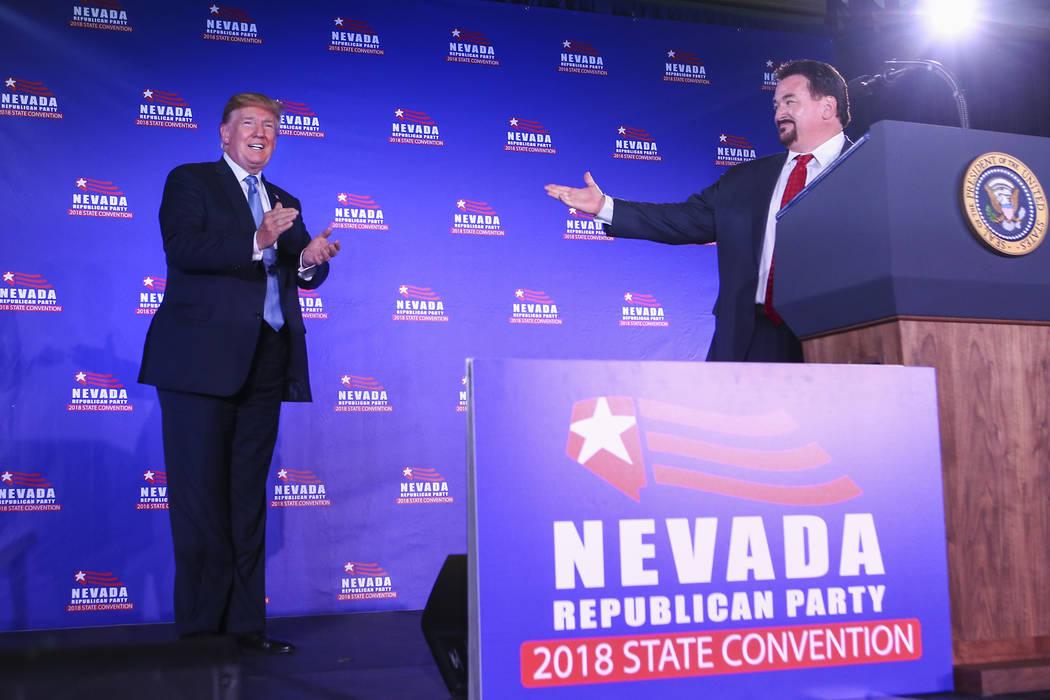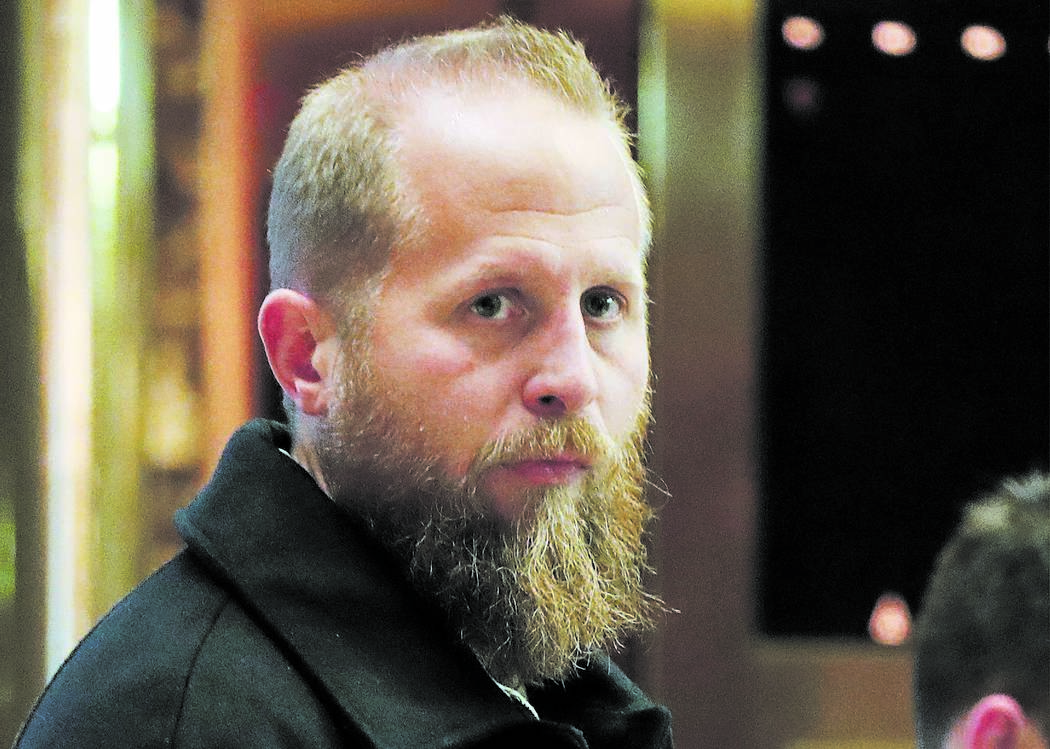STEVE SEBELIUS: Donald Trump wants Nevada in 2020
In late April, President Donald Trump’s 2020 campaign manager Brad Parscale surprised many when he told “Face the Nation” host Margaret Brennan that Nevada was on the list of states “that we did not win in 2016 that I think are open for 2020.”
Speculation started immediately: Was this a serious plan, or a Trump head fake to get Democrats to devote resources to states where they were already strong?
Recent election returns suggest the latter. But Republicans insist Trump can win the Silver State in 2020 despite having lost it to Hillary Clinton in 2016. (It was a rare instance of Nevada — which almost always sides with the winner of the presidential contest — backing somebody who ultimately lost the Oval Office.)
The numbers: Trump lost Nevada by about 27,000 votes, falling 2.42 percentage points behind Clinton. That same year, Democrat Catherine Cortez Masto defeated Republican Joe Heck for U.S. Senate by about the same spread, 2.43 percent.
By 2018, the gap had widened: Clark County Commissioner Steve Sisolak beat Attorney General Adam Laxalt for governor by nearly 40,000 votes, or 4.08 points. And Rep. Jacky Rosen dispatched U.S. Sen. Dean Heller by nearly 49,000 votes, or 5.03 points.
That same election broadened and deepened the Democratic majority in the Legislature, where they secured more than a veto-proof majority in the Assembly and got within one seat of two-thirds in the state Senate.
And, looking back over the past decade, the only GOP victories at the top of the ticket were Heller’s narrow defeat of Rep. Shelley Berkley for U.S. Senate in 2012 (by just 1.16 percentage points) and Gov. Brian Sandoval’s two easy victories (by 11.75 percentage points in 2010 and an astounding 46.7 percentage points in 2014).
The election results prompted at least one Republican National Committee official to proclaim Nevada officially a blue state, with statewide races out of reach for the GOP absent a major scandal or compelling issue.
So what makes Republicans think they can win with Trump, when the trends seem to be going in the other direction?
First, Republican operatives note, Trump is more popular in Nevada than either Laxalt or Heller was. He came much closer to a victory than either of them did. (To be sure, Trump ascribed Heller’s loss to the senator’s failure to back the president in 2016 and his tardy embrace in 2018.)
Second, 2018 featured statewide officials and a U.S. Senate contest at the top of the ticket, but not a presidential race. There are some voters who are loyal to the president but who might not turn out in midterm contests. Those people will be back in 2020, Republicans say.
Third, Trump and the Republican National Committee will have the resources to compete, not just in Nevada but across the country. (The RNC’s May fundraising total of $14.6 million, for example, more than doubled the Democratic National Committee’s figure for that month.)
Fourth, Trump is staffing up in Nevada, with consultants such as Jeremy Hughes (a Heller veteran) and University of Nevada, Reno alum Joe Weaver as state director. In addition, Chris Carr, the political director of the president’s 2020 effort, has Nevada ties, most recently as Wynn Resorts’ government affairs director.
And that’s not to mention the president’s legitimate friendship with Nevada Republican Party Chairman Michael McDonald. Trump asked McDonald to stay on as chairman, and even elected officials have been heard to lament that McDonald has spent more time in the Oval Office than they have.
If the Trump campaign is bluffing, it’s quite an elaborate bluff. Occam’s razor suggests the campaign really does think the president can win, or at least be competitive, in Nevada. And he knows Democrats will not make the same mistakes Clinton made in 2016, so adding up to the 270 electoral votes necessary to win the White House may involve states that weren’t part of the Trump calculus in 2016.
None of that is to say this will be easy, however. Democrats still maintain an active voter registration lead of 70,000 (as of May). And that’s before the vaunted Democratic machine built (and still influenced by) former U.S. Sen. Harry Reid has fully engaged its voter registration program. Those numbers will surely be boosted by the February caucus.
And under rules adopted by voters in 2018 and the Legislature this year, voter registration will be easier than ever before, with same-day registration at the polls and automatic registration at the DMV. That will open voter lists to new prospects for both parties but will favor the party with the best get-out-the-vote machinery.
Moreover, there are a growing number of voters who register as nonpartisans, more than 344,000 as of last month. How they break will be important to the 2020 contest.
Momentum is certainly on the side of the Democrats, but they would be foolish to consider Nevada’s outcome already decided. Complacency was a Trump ally in 2016; Democrats will have to ensure they press their advantage and take nothing for granted next year.
Contact Steve Sebelius at SSebelius@reviewjournal.com or 702-383-0253. Follow @SteveSebelius on Twitter.


















